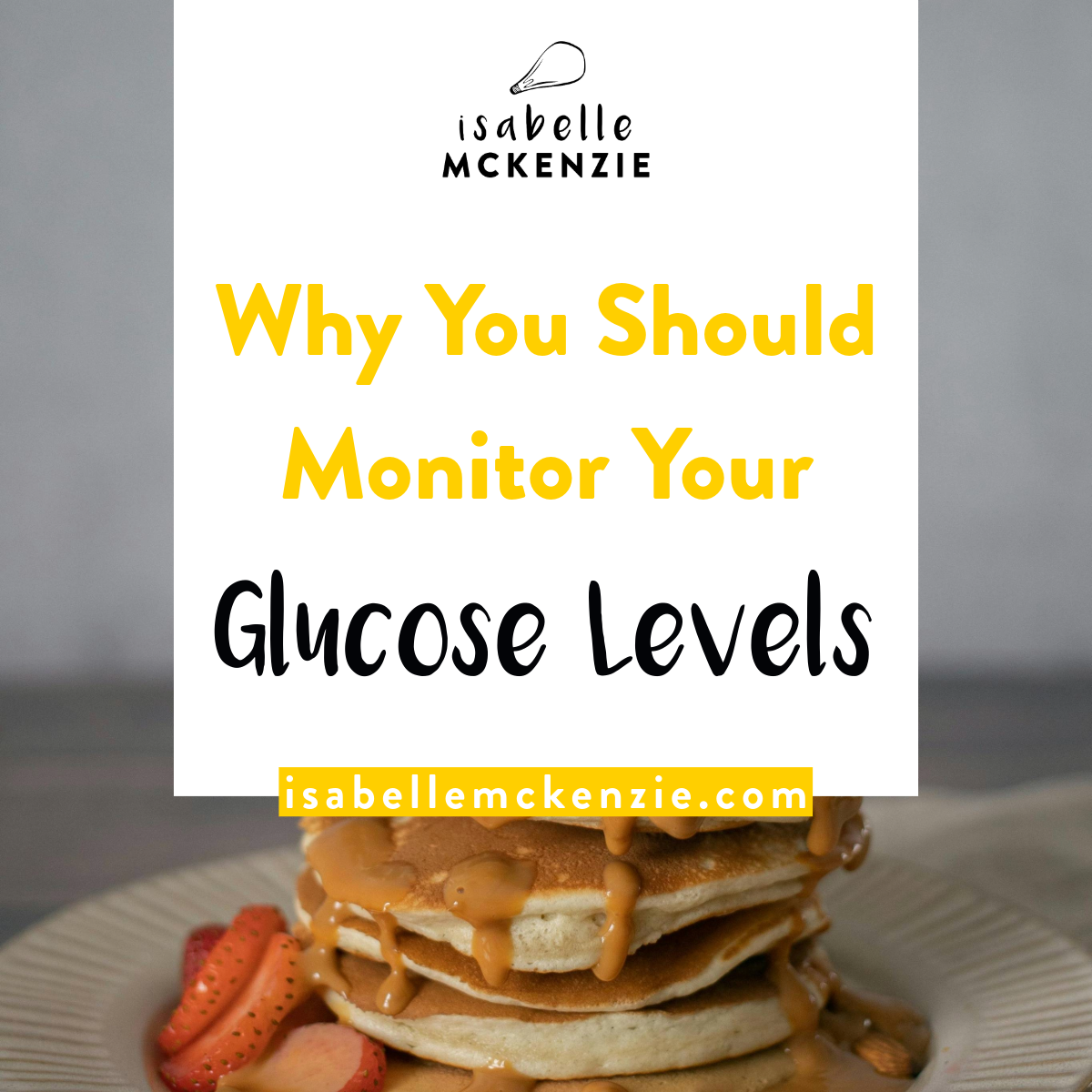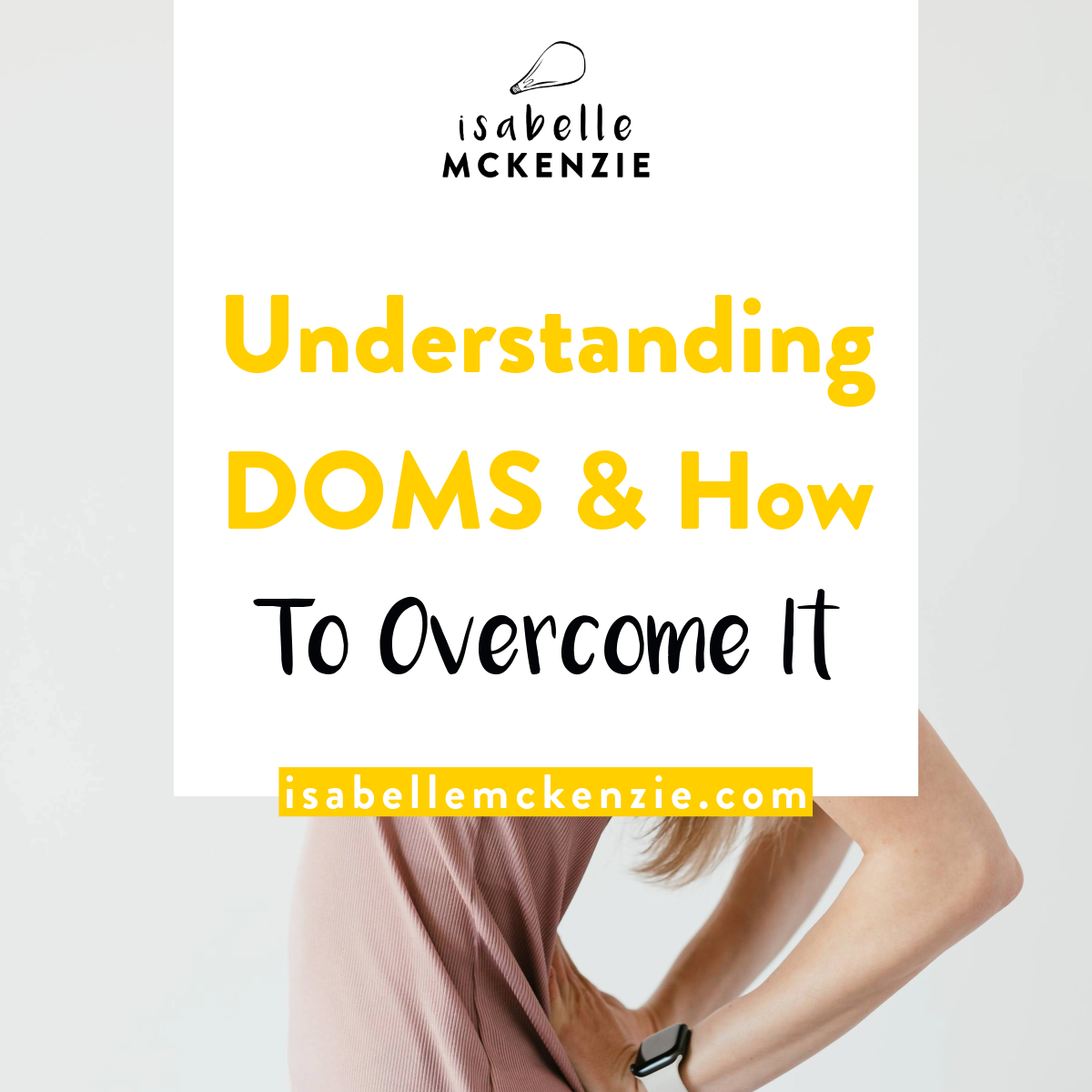Late Night Binge Eating: Why You Do It and How To Stop It
#SugarBalancedLiving
Learn the 5 best ways to stop late night eating and food binging in its tracks! If you find yourself too tempted to say no to that bag of chips after a long day and spiraling into candy and comfort foods, odds are you are a late night binge eater. Here are the most common causes and the best ways to break those negative food habits.
Have you ever found yourself having a “good” aka healthy food day, until after dinner where everything seems to go downhill? Yeah, I've been there too.
It's 9:30pm, you're cozy on the couch, scrolling mindlessly through Netflix shows. Next thing you know, you’ve taken a quick trip into the kitchen and you now have a bag full of salty chips and a handful of those oh-so-sweet gummy bears. Then, you remember that you have a pint of your favorite caramel ice cream in the freezer, maybe you should have some of that too. Cause, why not?
But oh my gosh, you feel OUT OF CONTROL. It's so frustrating, stressful, and you feel guilty because you just can’t stop doing this! You work so cleverly during the day to make the healthiest choices for your body, yet a night time you can’t help yourself but have these negative snacking habits, that leave you feeling terrible.
Why do we work SO hard during the day to be conscious of everything eating during, yet come nightfall, everything seems to break loose? No matter what we do, all control crumbles, and you can’t stop overeating or snacking on unhealthy junk foods and treats at night!
This issue is one of the biggest struggles I hear from the women I work with, and it feels like such a shame that you can feel like you are healthily unstoppable all day but find yourself at the end of the day endlessly hankering some misguided treat and junk food pleasure.
What may seem like an innocent snack at first turns into a nightly vicious cycle of eating all the ‘wrong’ things and feeling lethargic after a binge in the morning?
A study published by the Journal of the American Medical Association found that night eaters consumed more than 50% of their daily calories between 8 p.m. and 6 a.m. This is a serious problem folks.
And this vicious cycle only further wrecks our wellness promises to ourselves by leaving us guilty and conflicted for not following through with our health plans, leading us to feel hopeless. It is already hard enough to stay consistent and successful with your new healthy eating routines without demoralization, shame, and disappointment creeping in.
We blame ourselves and perceive our behavior as having done everything wrong, while the truth is much more complicated. We need to look at emotional actions, your mental state, ingrained habits, and food and diet culture itself, to see what's pushing us into this predicament in the first place.
What can be done to combat our nightmarish nighttime snacking habits?
Up until this point, our solution has just been to use willpower or yet another restrictive hack that only help us in the moment and are often fleeting and unreliable or we find a new deprivation heavy diet because we think it’s the only way to keep our ‘HUGE’ appetite and inner ‘foodie’ in check. In my opinion, this type of behavior only leads to more food cravings and binge-eating slip-ups.
Although we solely blame our willpower, there are many reasons behind your nighttime cravings that have nothing to do with food at all, even if food is often what we look at most to solve the problem. For example stress, boredom, hormonal imbalances, sleep deprivation, etc. are just a few example reasons why you give in to food cravings at nighttime.
How To Stop Breaking Your Healthy Diet At Night Time!
Luckily, there are real and effective ways to maintain consistency with our healthy lifestyle from morning to night.
Today I'm going deep dive into the reasons why you keep snacking and binging at the end of the day and how you fix them.
By the end of the article you’ll have the tools to move past old worn-out ingrained habituated behaviors and compassionately move towards daily healthy habits for both mind and body that’ll help you beat your nighttime eating habits, shed weight, and live not only a healthier lifestyle but also live a happier life.
1. You’re an emotional eating
I want you to take a minute to look at the WHY? What are you wanting to get from eating food? Of course, there are so many reasons why we use food. But if we look at this specific situation. What is the reason WHY you are using food?
For most people, the answer is… emotional eating.
What is that you may ask? Well, it's that deep down feeling and need for a large bowl of gooey macaroni and cheese or a box of cookies, to heal the wounds of a long, hard day or to reward yourself for having a successful day.
That my friend is emotional eating. Overeating at night is most commonly a crummy, deeply ingrained habit fueled by feelings like frustrations over the day, loneliness, anxiousness, or boredom.
For some of us this is just an occasional occurrence, but, sadly, for many of us, it’s an affliction. It’s our default setting, where we find ourselves reaching for the sugary treats and junk foods every time we feel overwhelmed, stressed, or feel like we need a reward for a long day coming to an end, having eaten healthily during the day, worked hard to meet deadlines, cooked dinner, put the kids to bed, etc. and finally its time to relax unwind and take time for you by rewarding yourself with food.
However, snacking and indulging like this may provide you with a boost of happiness, but it’s only a short snap of energy, and you’ll find yourself feeling like you need something else to indulge in pretty soon after.
Emotional eating occurs when you use food to address, or hide, intense emotions. Usually, these intense emotions are negative ones: like sadness, stress, grief, a lack of a feeling of control, and loneliness-- but interestingly, they can also be triggered out of happiness or comfort.
You see, you don’t just need to find out how to stop nighttime snacking bingeing; you need to learn to find fulfillment somewhere else instead. Once you uncover why you’re using food, you can begin to discover how you can fulfill those reasons with something else.
Don’t just create yet another rule to stop yourself from snacking, get to know yourself and how you can meet your needs met on a deeper level instead of overeating to fill the need. It’s time to make the transition. While I know this can’t happen overnight if you commit to exploring your habits and emotions and how you can find what it is you want, you can make it happen.
How to Stop That Emotional Binge Eating:
My favorite way of learning to reward and fulfill myself after a long day is to stop and pause. Allow yourself time to move into the different components of your day. For example, maybe your transition is when you come home from work every day and instead of leaping into house chores and paying bills, instead, just stop. Even if it's just for 10 minutes, chill on the couch with a cup of tea and read a couple of pages of a book, take a bath, or listen to some of your favorite songs. Whatever works for you, create a sort of ritual to transition into the next part of your day. Take some breathing space and get in touch with your self-care.
2. You’ve been starving yourself during the day
Do you want to know the most common reason why people go crazy for sugary and junky foods after dinner? It might surprise you to hear this but… you might not be eating enough during the day.
Yep, I just said that. The reason why you're overeating at night might be because you're not eating ENOUGH during the day! Lack of willpower here isn’t an issue; it could be biology aka your body protecting itself from under-eating.
Now you may be asking yourself: if you’re not eating enough and your body needs nutrients and energy, why would you only be craving carby mac and cheese and sweet snacks?
Well, I have an answer to this. When you don’t eat enough calories, your body starts looking for fuel fast as a way to catch up. So what do you do? Crave sugar and refined carbs, since as you probably already know, sugar gives you quick energy, even though it’s not necessarily good energy.
I know this may sound unfair, especially since you probably feel like you’re “really good” all day long. However, unfortunately, this type of thinking about being “really good” is the exact reason why many people are under-eating. Most of the time being “good” with your eating usually means you’ve skimped on food or skipped a meal during the day. And whether or not it's subconscious or not we often are using this as an attempt to try to “save up” calories.
To summarize, what I'm saying here is that a strong drive to eat ALL of these high-calorie and high sugar foods is usually your body's natural response to starvation. I know it sounds kinda extreme but that's exactly what your body thinks is happening during a day where you neglect to keep your body probably fueled.
Depriving ourselves of food leaves us with a lingering feeling of hunger, especially later in the day. If we aren’t getting enough food, honestly it’s no surprise that we can’t get food out of our minds and then lose control and stock up on all the wrong foods come nightfall. If we’re tired and hungry, we’re going to so-called “reward” ourselves as the day comes to an end. That’s why it’s crucial to listen to our hunger cues and to not be afraid of fat and calories.
Yes, don’t be afraid of calories...
Counting and cutting calories is a practical approach for guiding you to a balanced diet that’ll help you lose weight. However, do not fixate on numbers, do not under eat, and take a strong approach of focusing on changes in dietary behavior rather than calorie counts.
‘Healthy food’ isn’t just about the calories, but how much of the protein, carbohydrate, and fat, and vitamins and minerals you take from the food that's important for overall well-being. Calories should only be used for general guidance.
Sometimes high-calorie foods may be better for you than lower-calorie foods, especially healthy fatty foods like nuts, olive oil, avocado, fruits, and coconut oil, they may be high in calories, but they are full of nutrients that you need to stay at the peak of health.
Calories are something we’ve all had to deal with at some point or another - whether our goal is to gain, maintain, or lose weight. But the question of how many calories we should be eating is a tricky one, especially when we’re given generalized statements like "The average woman needs about 2,000 calories per day to maintain her weight, and 1,200 calories per day to lose weight. And, the average man needs 2,500 calories to maintain, and 2,000 to lose weight". But is this even true? And how many calories should you be eating every day?
If you want to learn all about calories and want to understand where you can find the optimal sources of calories for your health goals and finally get to the answer behind how many calories you should really be eating every day, click here to check out my in-depth blog post covering all this and more: How Many Calories Should You Really Be Eating Every Single Day?
Furthermore, a simple solution for ending night-time binge eating is to eat more nutrient-dense food during the day. Try this consistently for at least a week and then evaluate how your nighttime binge eating is going. Most likely you'll notice your nighttime snacking will drastically reduce!
3. You’re not getting enough sleep
When you’re tired as heck… you’re throwing your hunger levels straight out of whack!
Therefore that need for food before bed might be because you're not getting enough sleep.
You see, sleep is closely connected with two very important hunger hormones: leptin and ghrelin.
Leptin, which reduces appetite, and ghrelin, which stimulates it, can both cause you a world of trouble when thrown off balance. You see, when you’re sleep-deprived, leptin levels will dramatically drop and ghrelin will soar sky-high = omg ravenous hunger = feeling of always being hungry even after eating a meal.
This is why learning both how to set up your best sleep conditions, plus tips on how to tackle sleeplessness is a key element for your health. If want to start getting effective vibrant sleep tonight, then feel free to check out my blog post: 12 Simple Tips for Better Sleep, where you’ll discover the best tips and tricks for a fabulous good night’s sleep; they help me fall asleep fast and make it all night without waking.
4. You’ve been using restrictive self-talk
In our diet-obsessed culture, there’s a pervasive idea that shaming ourselves about our perceived food failings, restrictive thoughts, and body inadequacies is motivating.
Well, it’s not.
Restricting doesn’t have to just be a full-blown restrictive diet and it comes in many sneaky thoughts. Food, whether eaten or avoided, is picked apart. “I didn’t earn this snack.” “I shouldn’t be eating this.” “I was so bad yesterday … I should skip lunch today.” “How many calories/carbs/fat do you think is in this?” “I’m not eating any more X until I lose X pounds.”
Positive Mantras for Weight-Loss:
These thoughts are necessarily diet-y, but they are forms of restrictions. You need to be on the lookout for these thoughts. If you catch yourself thinking something restrictive and can’t come up with a positive thought, come up with solutions to your negative situation. Instead swap out that thought with: "how can I best eat balanced today?" As soon as you say, “I’m bad because I ate this,” follow up with “It doesn’t matter as long as I eat well the rest of the day.” Instead of "I hate my body" say "My body is kind to me and I'm going to work hard to get healthier every day."
Thinking about the good and shifting away from the bad will help you feel more positive about the bigger picture of your food life, and maybe even your life in general. It is also okay to 'indulge' yourself from time to time, so you aren't constantly fighting those cravings, just go for good quality food. For example, let’s say you like steak. If you are eating cheap cuts that don't fill you up and are mostly fat, what is the point? Find a steak restaurant city that gives you quality for your treat time. Don't cut yourself off because you think that you shouldn't have it. Enjoyment can help us, but in moderation and better quality choices.
5. You need to break associations
For many of us, nighttime snacking is a habit or you could say a post-dinner ritual. A lot of us have gotten into the habit of changing into some comfortable clothes, plopping into a cozy spot, and start eating while watching TV or playing on iPads or a laptop at night. You enjoy a combo of different snacks both sweet and salty snacks and you don’t pay attention to what you’re quickly grabbing to eat during a commercial break or how full you’re feeling while you snack.
How to break activity-related food habits:
If you feel like you can’t envisage screen time without snacks and drinks, but you could try cutting down on your screen activity. Or strictly limit your screen eating to whole-grain crackers and hummus, fruits, veggies, or no-sugar drinks like unsweetened fizzy water.
Another strategy to avoid screen time snacking is to keep your hands occupied while watching TV. You could take up a hobby (like knitting, origami, art, etc.,) pay bills, play with your dog, fold or iron the laundry, or even better yet you could stretch on the floor.
Furthermore, if giving up this habit of snacking is causing you a difficult struggle and making you anxious, it might be time to begin a new habit, at least while you wean yourself off of snacking. Right after dinner every night instead of TV or screen times, try a distracting yet relaxing solution like meditation, take a warm bath while listening to music, sign up for evening yoga classes, or even step outside your door and go outside for a walk.
Yay! Let’s stop late-night binge eating & snacking for good...
Well, that’s it, congrats on clicking on the article and taking your first steps toward creating a lifestyle where you can feel in control of the food that you eat, instead of food controlling you, and endless cravings.
Whether you’ve discovered that your end of day snacking and binging is caused by restrictive self take pushed by our diet-obsessed culture, a habitual post-dinner ritual, tiredness, under-eating, or most commonly a crummy, deeply ingrained emotional eating habits fueled by feelings like frustrations over the day, loneliness, anxiousness, or boredom. Using these solutions will finally get you set on track to living your most vibrant and healthy life.
Summary: Late Night Binge Eating, Why You Do It and How To Stop It
And remember if you’re too tightly restricting all during the day or eating a lot of light foods, you are much more likely to binge at night. You need to be eating a "balanced" diet full of healthy fats, protein, and fibrous foods. A truly satisfied you is not going to need to tirelessly yearn for snacks after dinner.
Before you go anywhere… I know it can be very tough removing processed and synthetic packaged foods from your diet, especially when they cause you to endless crave them.
So, if your weight has crept up on you and/or you’re tired of feeling STUCK in trying to conquer negative food habits without food fads, obsessive dieting, deprivation, or the need for willpower, I have some extra support for you, that’ll help you in cutting down on processed foods and junk foods addictive pull!
And since I’m totally here to help you the best I can… for even more effective and actionable support, I’ve put together some seriously useful and easy hacks on cutting back sugar and junk foods for good.
Check out my FREE ‘Ultimate Guide to Crushing Your Sugar Cravings’ Downloadable Guide.
Get started on effortlessly breaking your sugar reliance/addiction for good with help + support. AND, most importantly, while maintaining a healthy balance between your mind and your body - because low-sugar living shouldn’t feel like deprivation.














… yup, the Isabelle behind the IsabelleMcKenzie.com!
Instagram: @ItsIsabelleM | Pinterest: @ItsIsabelleM | Subscribe on Youtube
I’m dedicated to helping teach people how to live their happiest, healthiest life and reach their goals so that they can create the lifestyle of their dreams with integrity & purpose.
I focus on self-care, mind, body and health, dedicated to helping teach peeps how to live their happiest, healthiest life and reach their goals so that they can create the life that will have them jumping out of their bed in the morning to actually live!
Read More >